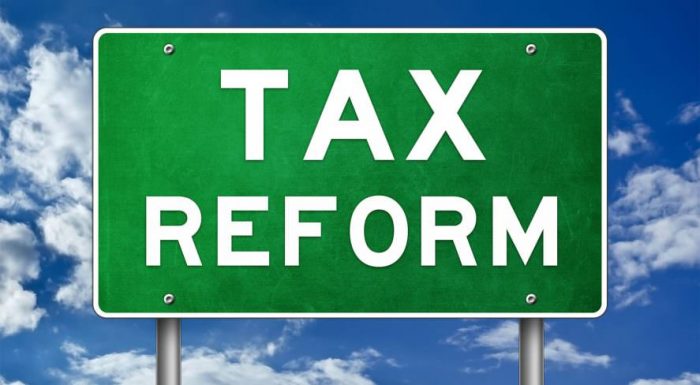In a major push to make taxation fairer and more inclusive, the Federal Government has approved a new tax reform framework set to take effect on January 1, 2026.
The reform package introduces 50 targeted exemptions and reliefs designed to cushion the impact of rising living costs on salary earners, pensioners, and small-scale entrepreneurs.
The initiative, led by Taiwo Oyedele, Chairman of the Presidential Fiscal Policy and Tax Reforms Committee, represents one of the most extensive restructurings of Nigeria’s tax system in decades. The goal, according to the committee, is to simplify the process, eliminate multiple taxation, and boost compliance by making the system more equitable and growth-friendly.
Spanning personal income tax, corporate tax, value-added tax (VAT), stamp duties, and capital gains tax, the framework reflects a commitment to supporting inclusive development while encouraging formal business participation and productivity.
Key Highlights of the 2026 Tax Relief Framework
1. Personal Income Tax (PAYE)
-
Individuals earning the national minimum wage or less will not be taxed.
-
Annual gross income up to ₦1.2 million (roughly ₦800,000 taxable income) will now be exempt.
-
Those earning up to ₦20 million annually will enjoy reduced PAYE rates.
-
Gifts are fully exempt from taxation.
2. Deductions and Reliefs for Individuals
-
Contributions to pension funds administered by PFAs.
-
Health insurance payments under the National Health Insurance Scheme.
-
Housing fund contributions under the National Housing Fund.
-
Interest payments on home loans for owner-occupied residences.
-
Life insurance and annuity premiums.
-
Rent relief: 20% of annual rent (up to ₦500,000).
3. Pension and Retirement Benefits – Fully Exempt
-
Pension funds and assets under the Pension Reform Act (PRA).
-
Retirement benefits in line with the PRA.
-
Compensation for job loss up to ₦50 million.
4. Capital Gains Tax (CGT) Exemptions
-
Sale of a personal or family home.
-
Personal effects or movable property worth up to ₦5 million.
-
Sale of two private vehicles within a year.
-
Share gains below ₦150 million annually or ₦10 million per transaction.
-
Reinvestment of share proceeds above the exemption threshold remains tax-free.
-
Pension funds, charities, and non-commercial religious institutions are exempt.
5. Companies Income Tax (CIT) Incentives
-
Small businesses (turnover ≤ ₦100 million and total fixed assets ≤ ₦250 million) will pay no company tax.
-
Labeled startups officially recognized by the government are exempt.
-
Compensation relief: 50% extra deduction for salary raises, transport subsidies, or wage awards to low-income workers.
-
Employment relief: 50% deduction on wages for new employees retained for at least three years.
-
Five-year tax holiday for agricultural businesses covering crops, livestock, and dairy farming.
-
Tax exemption for investments made in approved startups by venture capital firms, accelerators, or incubators.
6. Development Levy
-
Small businesses are now fully exempt from the 4% development levy.
7. Withholding Tax
-
Small-scale manufacturers, farmers, and agricultural enterprises will no longer have withholding tax deducted from their income.
-
Suppliers to small companies are also exempt from withholding tax deductions.
8. VAT Exemptions and Zero-Rated Items
-
Basic food items – 0% VAT.
-
Rent – Exempt.
-
Education services and learning materials – 0% VAT.
-
Health and medical services – Exempt.
-
Pharmaceuticals – 0% VAT.
-
Small companies (≤ ₦100 million turnover) – exempt from charging VAT.
-
Diesel, petrol, and solar power equipment – VAT suspended or exempt.
-
Refunds available for VAT on inputs used to produce VATable or zero-rated goods.
-
Agricultural inputs: fertilizers, seeds, feeds, seedlings, and live animals.
-
Agricultural equipment purchased, leased, or hired.
-
Disability aids such as wheelchairs, hearing aids, and braille materials.
-
Shared public road transport (non-chartered) – exempt.
-
Electric vehicles and spare parts – exempt.
-
Humanitarian and relief materials – exempt.
-
Baby essentials – exempt.
-
Sanitary products (pads, tampons, towels) – exempt.
-
Land and building transactions – exempt.
9. Stamp Duties
-
Electronic transfers under ₦10,000 – exempt.
-
Salary payments – exempt.
-
Transfers within the same bank – exempt.
-
Transfers of government securities and shares – exempt.
-
All stock and share transfer documents – exempt.
Driving Equity and Economic Renewal
This reform marks a significant milestone in Nigeria’s fiscal journey — not just as a revenue strategy, but as a people-centered policy aimed at empowering citizens and small businesses.
By eliminating redundant taxes and expanding reliefs, the government hopes to encourage compliance, attract investments, and reduce the tax burden on the productive class.
Analysts view the overhaul as a bold move toward achieving fiscal stability, inclusivity, and economic competitiveness, setting a precedent for how tax systems in developing nations can evolve to meet modern challenges.

